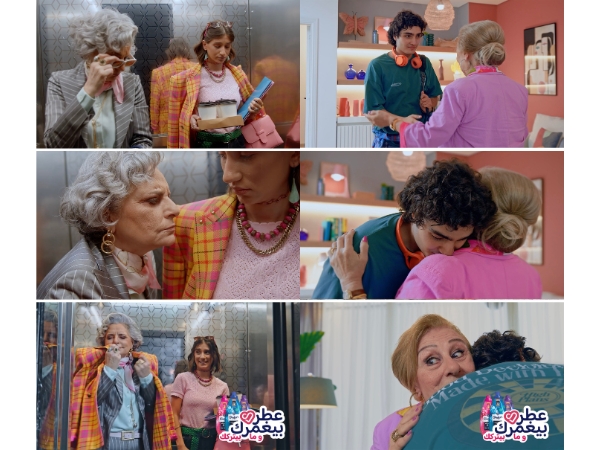News - Digital/Tech
Lebanese TikTok: Creative Chaos or Cacophonous Cringe?
by Christina Fakhry
March 23, 2023
.jpg) Advertisement
AdvertisementBut despite the proliferation of local creators on TikTok, many seasoned creatives and casual users on the consuming end have repeatedly pointed out the cringeworthy aspect of some of the content.
Between smiling through the cringe and searching for genuine fun, the debate rumbles on.
Democratization vs. Desensitization
TikTok is often credited for democratizing content creation through its creator-friendly algorithm where virality is not unattainable. A number of Lebanese creators were quick to cash in on the platform’s potential, amassing a large following and earning a number of brand deals in the process. And while some of them continue to deliver fun and relatable content, it seems others are just in it the drama.
Like all popular social media platforms, Lebanese TikTok can be “sometimes good, sometimes cringey” according to Lebanese content creator and widely followed YouTuber Joa Matar. “I see a lot of potential in some people but others think they can only go viral for making silly videos so that’s what they go for,” she observed.
Podcaster and screenwriter Anthony Sargon, who has been hunting down the weirdest and wildest social media moments and digging up influencer cringe on his weekly podcast Do Not Worry since the start of 2021, now boasts a growing Internet archive of local TikTokers’ most memorable shenanigans.
“TikTok is weird everywhere, but in Lebanon we’ve managed to hit a special kind of weird,” he told ArabAd. “We’ve ascended to the top tiers of cringe, and in our case, we put a lot of emphasis on catch-phrases and gimmicks. It doesn’t matter how bad your production value is, as long as you have the right gimmick or catchphrase, you’re golden.”
And while there are different niches within the local TikTok landscape, it often does feels like a “big group of people who already know each other” in the words of Lebanese content creator Ghady Al Hader who has been producing social media content since the age of 12. “Our humor just feels like an inside joke we're all in on, which sounds fun if you ask me,” he noted.
“What I like about TikTok is just how much of a ‘Wild West’ it is at the moment.”
Entertainment Value at All Costs
Lebanese Tiktok constitutes a space of pure laughter and entertainment from Al Hader’s perspective, yet the inherent entertainment value does come at a cost. “As fun as it can be, I do find it toxic sometimes,” he admitted. “I see a lot of videos where people are making fun of each other or of different groups for likes and comments.”
This has led him to limit his friendships within the platform upon noticing recurrent personality patterns he is not quite fond of. “It is unacceptable, as a creator, to get dozens, even hundreds of hate comments for absolutely no reason. I think people need to be nicer and just do their own thing,” he explained.
Besides becoming a breeding ground for petty arguments and hateful interactions that can sometimes take a toll on creators’ mental health, Lebanese TikTok is more often than not riddled with clichés. The lack of originality is striking according to Sargon who sees gimmicks and catch-phrases being constantly recycled.
“It’s like a car crash that you can’t take your eyes off of. It is a beautiful disaster,” he said. “What I like about it is the same thing that perplexes me: it’s just so wild and random that I simply can’t look away. Accounts like Naji Zakaria, Elio Elay, Zoulfyy, Joseph Merheb, Hasan Farhat, or Dr. Tyeb… I can’t get enough of these folks. For me, the cringier and the stranger it is, the better.”
On the other hand, there are many consistent lifestyle creators on the platform. “Some of them are absolutely adorable and I find myself binge-watching their videos,” Al Hader noted. “I'm currently really into the ‘it girls’ of Tiktok such as Joa matar, Linda Karam, Jessica Karam, Natasha Aris and Reina Aris. I love how calm and soothing their videos are, they make me want to get up and be productive.”
“TikTok is weird everywhere, but in Lebanon we’ve managed to hit a special kind of weird.”
The Future at a Glance
Upon embarking on his TikTok journey in 2020 after a few years of creating content for YouTube and Instagram, Al Hader has formed lasting friendships with some fellow TikTokers. “So many of us met each other in real life and are now close friends, all because of one video we got on the for you page,” he explained.
He hopes for the platform to evolve into a more loving and safer social media space in the future. “I also see quite a lot of lifestyle videos on TikTok and I do find this interesting,” he added “We get to see what other people in the country are doing and through that, we are able to discover hidden gems in our area.”
Given how fast social media changes on the daily, Sargon finds it rather difficult to predict what the future holds for Lebanese TikTok. “I think that by ‘improving’ TikTok in the traditional sense, you run the risk of ruining it. What I like about it is just how much of a ‘Wild West’ it is at the moment,” he noted.
“It can be a dangerous and addictive platform for younger users, but I’m personally enjoying the chaos, and trying to improve it means we’re going to get more sanitized content. I for one hope it stays as weird and cringy as it is, or else it’ll stop being fun.”
On the creative side, Al Hader has witnessed more and more creatives share their work on the platform, which is in turn encouraging others to do the same. “I hope to see a future full of young people showing the rest of the world their work and what they like to do,” he concluded.




.jpg)
.jpg)









